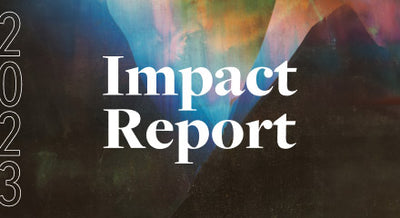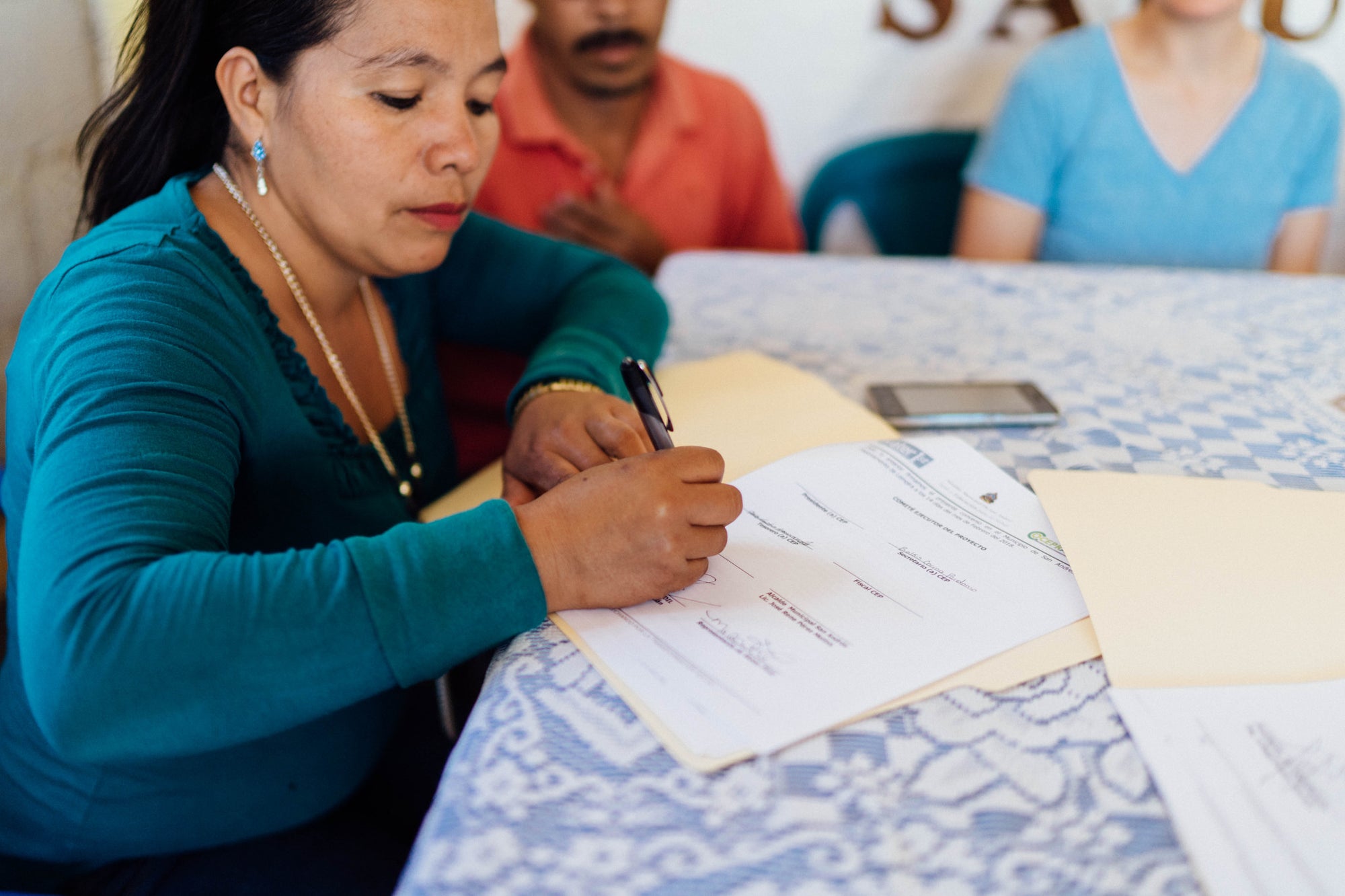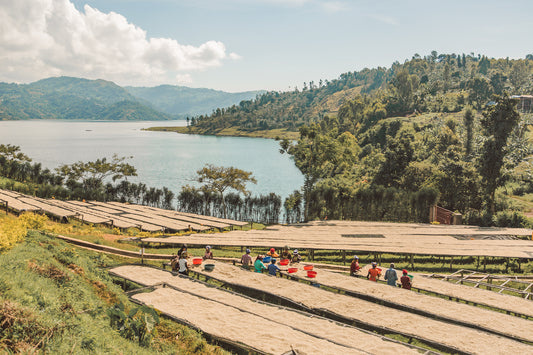The community of San Antonio Granadilla, located in the rugged coffee growing region of Lempira, Honduras, is comprised of 48 households involved in coffee production as small farm owners and coffee pickers.
Currently, the community relies entirely on a few small rivers and contaminated springs for their water supply. To reach it, the women of each household trek long distances multiple times a day just to meet the basic family needs of drinking, cooking, bathing and laundry. Without easy access to both clean and convenient water, the health and productivity of the entire community are negatively impacted.
The Goal
This integrated water project will ensure that the 48 households of the San Antonio Granadilla community each receive a tap and water-seal toilet in their home, ending their walk for water.
Project #43 includes:
- A water system with piping and distribution to each individual household
- A water-seal, pour flush toilet in every household and the local school
- Community organization and training to ensure long-term sustainability and durability of the system
- Hygiene education program, made fun through social gatherings that include songs, skits and games
The Approach
Water1st's local partner in Honduras is COCEPRADIL, a cooperative composed of communities that have previously completed water and sanitation projects. The cooperative exists to assist communities with long-term system maintenance and construct new systems for communities in need.
All project organization and construction will be completed by the community, demonstrating their long-term commitment to the project. Every household contributes exactly the same amount of labor as a way to make sure it's fair for everyone. While exceptions are made and worked out by the community, most often families find a way to contribute their share.
The water source for this project is a capped mountain spring. Water will flow downhill via 3 miles of pipeline to a 5,000 gallon storage tank. From there, water will continue to flow downhill by pipeline to each household.









On March 2, 2019 the community of San Antonio Granadilla gathered to celebrate a monumental achievement - the completion of their community water project. In partnership with Starbucks and MiiR, Water1st provided the financial resources needed to construct the project. Its local partner, COCEPRADIL, designed the project and managed the construction process. The community provided thousands of hours of labor to build it.
Project Details
• 1 spring developed as a water source
• 3.5 miles of pipeline, 6,000-gallon storage tank
• 34 households connected to water system
• Water meters at every home
Water1st projects are designed to end the walk for water.
“We don’t accept partial solutions that shorten the walk for water or make it less strenuous. We end it. A completed project has a tap at the household with water available 24/7. The result is a project that community members value highly. We have heard people speak of these water projects as defining moments in the history of a community. The project changes their lives so drastically, they can refer to themselves as ‘the way they were before the project’ or ‘the way it is now that the project is completed.’”
Water1st projects in Honduras provide each household with a water connection. The extra pipe and fixtures increase the total project cost, but the dividend is enormous. Household connections reduce the burden of fetching water to zero. Water use increases to 20 gallons per person per day. In a short time, the extra cost is totally outweighed by time-savings and improved health conditions. Constructed at every house is a hygiene station that includes a faucet and sink (a pila), a shower room and a toilet room. Each family repays the cost of the hygiene station over two years. That money goes into a revolving loan fund that covers the cost of hygiene stations for the next project.
Following the inauguration celebration, individual households were visited by Water1st staff to see the completed work. Neti Sanchez was one of many who expressed her relief to have access to safe water. She has taken her children to the hospital many times to treat serious cases of diarrhea. This project will prevent those illnesses and save her family the anxiety and financial burden.













